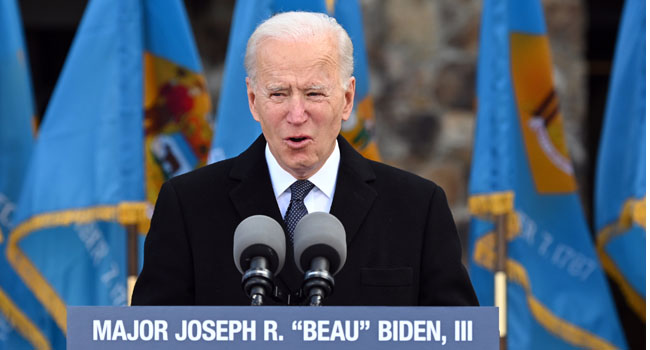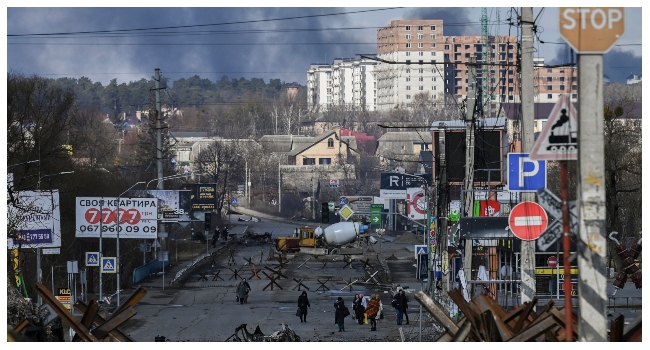
US President Joe Biden on Monday “reiterated his clear position” to Prime Minister Benjamin Netanyahu against an invasion of Rafah, the White House said, after Israel defied US warnings and told Palestinians to evacuate part of the southern Gaza city.
The two leaders spoke as Biden mounts a diplomatic offensive to get ceasefire talks between Israel and Hamas back on track, with Jordan’s King Abdullah II due at the White House for lunch.
Biden told Netanyahu in April that invading Rafah would be a “mistake,” and Washington has said it does not support an offensive without a credible plan to aid some 1.2 million civilians sheltering there.
“The president reiterated his clear position on Rafah,” the White House said in a brief readout of the call, adding that Biden also briefed the Israeli leader on talks to free Israeli hostages held by the Palestinian militants.
Netanyahu meanwhile “agreed to ensure the Kerem Shalom crossing is open for humanitarian assistance for those in need,” the White House said, after Israel closed the key Gaza border crossing following a Hamas rocket attack.
Biden did not respond to shouted questions and walked straight to the Oval Office from his helicopter, Marine One, after returning to the White House from a weekend at his family home in Wilmington, Delaware.
Earlier, a spokesman for the US National Security Council announced the Biden-Netanyahu call, saying “we have made our views clear on a major ground invasion of Rafah to the Israeli government.”
“We continue to believe that a hostage deal is the best way to preserve the lives of the hostages, and avoid an invasion of Rafah, where more than a million people are sheltering,” the spokesman told AFP.
Biden is under growing domestic pressure about the war in Gaza in an election year, with pro-Palestinian protests roiling US university campuses.
New York’s prestigious Columbia University, which has been at the heart of the protests, said Monday it had canceled its main graduation ceremony next week.
‘Catastrophe’
Israel’s military called Monday for the evacuation of Palestinians from eastern Rafah in a move Washington believes is in response to a rocket strike by Hamas militants that killed four Israeli soldiers on Sunday.
The evacuation call followed intensified disagreement between Israel and Hamas over the Islamist group’s demands to end the seven-month war, during weekend talks in Cairo.
Consultations between the United States and Qatar, which like Egypt are mediating the talks, were expected on Monday in Doha, but state-linked media in Egypt said negotiations had stalled after the rocket strike.
Biden’s lunch with the Jordanian king, a key US ally in the Middle East, is sure to focus on the ceasefire talks.
King Abdullah II last visited the White House in February when he called for an immediate ceasefire and warned an attack on Rafah would cause a “humanitarian catastrophe.”
In April, Jordan worked alongside the United States and other allies to shoot down Iranian drones that Tehran sent towards Israel, with the kingdom keen to avoid a wider conflict.
Israel’s apparent determination to press ahead with a Rafah offensive underscores the difficulties Biden has had exerting any leverage from being Israel’s main military and diplomatic backer.
In a shift in early April after months of unstinting support, Biden warned Netanyahu that US policy on Gaza depended on the protection of civilians and aid workers.
The warning, which followed the killing of seven aid workers in an Israeli drone strike, was the first hint of possible conditions to Washington’s military support for Israel.
But since then, the United States has declined to curb the multi-billion-dollar assistance pipeline to Israel, saying it has been allowing in more aid to Gaza.
AFP


